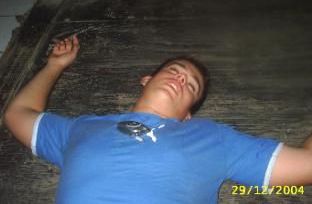JORAN COULD BE A TEST CASE FOR THE NEW MILLENIUM
Gambling, alcoholism, antisocial behavior: shared roots?
Wendy Slutske and colleagues say the common assumption that gambling leads to antisocial behavior overlooks evidence showing that "a substantial proportion of individuals with pathological gambling have a history of antisocial behavior that most likely predated their gambling involvement." The lifetime prevalence of childhood conduct disorder among gamblers is as high as 40 percent, the researchers note, saying "If antisocial behavior was predominantly a consequence of pathological gambling, then we would not expect to find such high rates of conduct disorder among [pathological gamblers]."
In a twin study involving nearly 8,000 men from the Vietnam Era Twin Registry, Slutske et al. examined the relationship of pathological gambling to childhood conduct disorder, adult antisocial behavior, and antisocial personality disorder (antisocial behaviors beginning before age 15 and continuing into adulthood). As expected, the researchers found that "pathological gambling was significantly associated with all three antisocial behavior disorders," with the odds of a lifetime diagnosis of antisocial personality disorder being 6.4 times greater among subjects with a history of pathological gambling than among those without a gambling problem. Moreover, they say, "the association... was predominantly explained by genetic factors."
The researchers say that one common genetic link between pathological gambling and antisocial behavior may involve impulsivity, a personality trait strongly associated with both disorders.
Early alcohol use also linked to genetic vulnerability
In related studies, Matt McGue and colleagues report that individuals who begin drinking alcohol before age 15 are at increased risk for alcoholism, substance abuse, disinhibited behavior, antisocial personality and conduct disorder, poor school performance, and reduced P3 brainwave amplitude, a biological marker for increased alcoholism and substance abuse risk. The researchers also report that in males, the risk for early drinking and related pathology is heavily influenced by genetics.
Studying more than a thousand twins, the researchers found that "age at first drink is not specifically associated with alcoholism but rather is correlated with a broad range of indicators of disinhibited behavior and psychopathology," and that pathological behavior often precedes alcohol use in early drinkers.











No comments:
Post a Comment